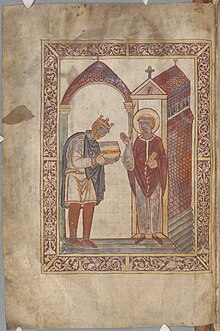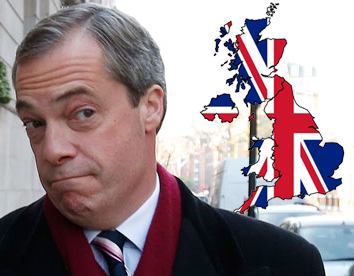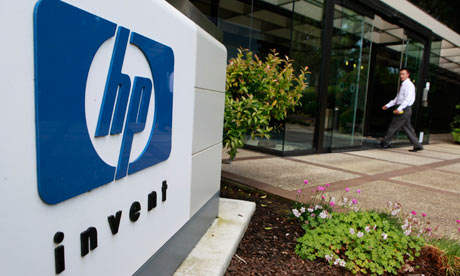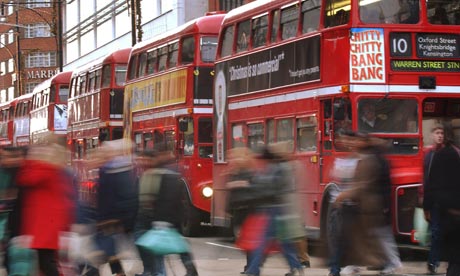The Economist magazine apologised to the English Democrats this 1st June for calling us “Far Right”.
The Economist had published an article about the current state of National Identity in England. It was written from a bit of a strange perspective. It only looked at the issue of National Identity from the somewhat undemocratic end of the telescope, as their perspective seemed to be more about what was acceptable to “ethnic minorities” than the perspective of what the majority might feel about their National Identity.
From the other end of the telescope and as I have written on previous occasions the exciting thing about the Census results, from an English Nationalist perspective is that 70% of the population of England say that they are “English” and over 60% said they were “English Only”, that is over 32 million people!
Obviously however a magazine is entitled to take an editorial decision that they are more interested in the ethnic minority’s than in the majorities opinion but what they are not entitled to do is to use untruth and innuendo to smear us. In this case I have taken action because of the “Far Right” smear against the English Democrats. I set out below the sequence of events.
First, here is the Economist's article:-
Englishness Identity parade Minorities embrace Englishness, even as metropolitan whites shun it
May 25th 2013
IN 1924, speaking on St George’s Day, the then prime minister, Stanley Baldwin, gave thanks that for once he could refer to England “without some fellow at the back of the room shouting out: ‘Britain!’” Even then, the tendency of the English to forget the other nations of the United Kingdom irritated the politically correct.
The distinction between Britain and England continues to confuse tourists; the natives furrow their brows, too. Filling in their census forms in 2011, some 60% of people in England gave their national identity as “English” only, whereas 19% gave it as “British” only. (The remainder were from another part of Britain, foreign nationals or claimed multiple national identities.) But, as data released on May 16th showed, there is great variation. Whether a person considers himself English first or British first is a powerful predictor of class, race and political persuasion.
Blacks and Asians are far more likely to consider themselves British: just 8% of ethnic Bangladeshis in England identify straightforwardly as English, for example. The old are more likely to describe themselves as English than the young. And among white Britons there is a geographical divide. In central London and other wealthy places, Britishness is popular: just 57.5% of white Britons in Cambridge call themselves English. In poorer spots along the Thames Estuary, in the West Midlands and in many northern cities, Englishness is the default identity (see map).
As Britain and Britishness have become more ethnically diverse, and as Scottish and Welsh nationalists have asserted themselves, many white Britons have turned to Englishness as an alternative identity. A poll by IPPR, a think-tank, finds that people who consider themselves English rather than British tend to be more hostile to immigration and more likely to vote for right-wing parties such as the UK Independence Party. For some, the flag of St George is too closely associated with far-right groups such as the English Defence League.
That repels ethnic minorities and wealthy white liberals. Yet there are reasons for optimism. Mixed-race people are far more likely to claim an English identity: some 46% identified themselves that way in the census. People with mixed black Caribbean and white parentage identify as English almost as often as whites do. And in some places where Englishness in general is more common, such as the West Midlands, ethnic minorities as well as whites are embracing it. That suggests that Englishness is becoming less exclusive.
Some would like that process to speed up. Sunder Katwala, the director of British Future, another think-tank, reckons that the government should do more to create a more civic English identity. Though white Britons are broadly tolerant of other races, a survey in 2008 found that over half would not consider a non-white person to be English even if he was born in England. Still, few question the Englishness of the England football team—which contains several black players. If that bunch of serial losers can unite the nation, developing a few other sources of English pride ought not to be too difficult. ________________________________________________________________
After having read the article I wrote to the Economist this email and also sent it as a letter:- Dear Sir,
Re: Article entitled “Englishness - Identity parade - Minorities embrace Englishness, even as metropolitan whites shun it” – 25th May 2013
http://www.economist.com/news/britain/21578435-minorities-embrace-englishness-even-metropolitan-whites-shun-it-identity-parade
I am the Chairman of the English Democrats.
In the above article you have published the following statement:- "For some, the flag of St George is too closely associated with far-right groups such as the English Defence League and the English Democrats."
The English Democrats are not, and never have been, “Far-Right” and you have no conceivable honest justification in making or publishing such a blatant and politically partisan slur.
In fact the English Democrats are the English nationalist party which campaigns for a Parliament for England, First Minister and Government, with at least the same powers as the Scottish ones within a Federal UK; for St George’s Day to be England’s National holiday; for Jerusalem to be England’s National Anthem; for a Referendum to leave the EU; for an end to mass immigration; for the Cross of St George to be flown on all public buildings in England.
The English Democrats are England’s answer to the Scottish National Party and Plaid Cymru. The English Democrats’ greatest electoral successes to date include winning the Directly Elected Executive Mayoralty of Doncaster Metropolitan Borough Council and the 2012 referendum; We won the referendum which triggered a referendum to give Salford City an Elected Mayor; In 2012 we saved all our deposits in the Police Commissioner elections and came second in South Yorkshire; In the 2009 EU election we gained 279,801 votes after a total EU campaign spend of less than £25,000 (giving the English Democrats by far the most cost efficient electoral result of any serious Party in the UK).
In the circumstances I write to formally request a full right of reply to be published in your next issue.
Please confirm your agreement to the above, within the next 48 hours, failing which we shall forthwith make a complaint to the Press Complaints Commission.
Yours faithfully
R C W Tilbrook ________________________________________________________________
Below is the sequence of email correspondence:- ________________________________________________________________
In a message dated 29/05/2013 09:30:25 GMT Daylight Time
Dear Mr Tilbrook,
Many thanks for your note, regarding the description of the English Democrats in last week's issue of The Economist. I accept that it is inaccurate to refer to the party as "far-right" and I am sorry that we did so. I will print a correction in this week's issue (which appears on Friday) and also amend the online version of the article, appending a note to explain why.
Please do not hesitate to get in touch in future. Your note appears to have reached several people; I am the right person for complaints regarding the Britain section.
All best,
Joel Budd
Britain editor
The Economist
---------------------------------------------------------------------------------------------------------------------------------------------------
From: RobinTilbrook
Sent: 29/05/2013 09:52:01 GMT Daylight Time
Subj: Re: Article entitled “Englishness - Identity parade - Minorities embrace Engl...
Dear Mr Budd
Thank you. I wasn't sure to whom I should complain. I think that I am also entitled to a Right of Reply but would be happy to do this cooperatively by way of a letter commenting on the Article and without being too pointed about the error.
Yours sincerely
Robin Tilbrook
---------------------------------------------------------------------------------------------------------------------------------------------------
From: Joel Budd
Sent: 29/05/2013 10:13:18 GMT Daylight Time
Subj: Re: Article entitled “Englishness - Identity parade - Minorities embrace Engl...
Dear Mr Tilbrook,
Please send a letter to our letters editor--email address in the paper. Letters do not appear immediately, but two weeks after the publication of the article to which they refer. I cannot guarantee your letter will appear in the paper, but we will run it online. In my view a correction is the appropriate response to your complaint--you are challenging us on a point of fact, not on a point of argument.
Joel Budd
---------------------------------------------------------------------------------------------------------------------------------------------------
From: RobinTilbrook
Sent: 31/05/2013 10:36:08 GMT Daylight Time
Subj: Check out Correction: English Democrats | The Economist
Correction: English Democrats | The Economist
Correction: English Democrats
Jun 1st 2013 |From the print edition
In our article “Identity parade”, published in last week’s issue, we described the English Democrats as “far-right”. This is inaccurate. They are a nationalist party that campaigns for an English parliament. Sorry. This has been corrected online. _______________________________________________________________
Dear Mr Budd,
Thank you for this. Is there any news about my letter?
If we are agreed on that too I shall need to pull the PCC complaint.
Yours sincerely
Robin Tilbrook
---------------------------------------------------------------------------------------------------------------------------------------------------
In a message dated 31/05/2013 10:43:54 GMT Daylight Time, Joel Budd writes:
That is not my decision. I'll let you know what the letters editor decides.
---------------------------------------------------------------------------------------------------------------------------------------------------
From: RobinTilbrook
Sent: 31/05/2013 10:48:13 GMT Daylight Time
Subj: Re: Check out Correction: English Democrats | The Economist
OK thank you and thanks for your help
Robin Tilbrook
---------------------------------------------------------------------------------------------------------------------------------------------------
In a message dated 31/05/2013 11:04:39 GMT Daylight Time, Joel Budd writes:
Again, I am sorry we made the mistake in the first place.
Joel Budd
--------------------------------------------------------------------------------------------------------------------------------------------------- From: RobinTilbrook
Sent: 31/05/2013 12:59:37 GMT Daylight Time
Subj: Re: Check out Correction: English Democrats | The Economist
No hard feelings. Please bear us in mind for comment on the rising sense of English National Identity and on Devolution/Constitutional change for England.
Robin Tilbrook
---------------------------------------------------------------------------------------------------------------------------------------------------
In a message dated 31/05/2013 13:26:58 GMT Daylight Time, Joel Budd writes:
I will do that. Our letters editor is happy to run a trimmed version of your letter--please see below. This may not be the absolute final version: we sometimes need to cut letters further to make them all fit on a single page. I like your point about the popularity of English independence v the popularity of Scottish independence.
Joel Budd
—
SIR - In reply to your article on Englishness ("Identity parade", May 25th) I would point out that the 2011 census showed that 60.4% of people in England stated their only national identity as "English" and a further 9.1% said it was "English and British". In sharp contrast only 19.2% claimed to be "British only".
The demand for English independence is increasing in England. A ComRes survey in June 2011 found 36% support for England to be a fully independent country, irrespective of the result of the Scottish independence referendum. Since then support has grown and the demand for independence is now significantly more popular for England than for Scotland.
ROBIN TILBROOK
Chairman
English Democrats
Ongar, Essex
---------------------------------------------------------------------------------------------------------------------------------------------------
From: RobinTilbrook
Sent: 31/05/2013 14:51:54 GMT Daylight Time
Subj: Re: Check out Correction: English Democrats | The Economist
Dear Joel,
Thank you. I am happy with the edited letter.
On the subject of Independence, Prof Charlie Jeffery told me that there is about to be published the annual British Social Attitudes Survey (which is considered by academics to be the Gold Standard of opinion polling evidence) which he said will show that the demand for English Independence has risen and is now "substancial but not yet overwhelming or an absolute majority". I take this to mean in the upper 40s%.
There is also research evidence that much of UKIP's current support is from people who are now identifying as English nationalists and who, intruigingly, want Independence from the UK. Their tactical support of that British nationalist party is apparently because one aspect of their desire is Independence from the EU!
Robin
____________________________________________________________________
In a message dated 31/05/2013 15:41:31 GMT Daylight Time, Joel Budd writes:
Thanks for this. Interesting stuff.
A Scottish nationalist might point out that the prospect of English independence is considerably more distant than the prospect of Scottish independence from Britain (or, for that matter, the prospect of a British departure from the EU). No referendum looms on English independence. So the question is rather more theoretical at this stage.
Joel
---------------------------------------------------------------------------------------------------------------------------------------------------
From: RobinTilbrook
Sent: 31/05/2013 15:51:12 GMT Daylight Time
Subj: Re: Check out Correction: English Democrats | The Economist
Yes that Scottish Nationalist would be right because such things don't just happen, they have to be campaigned for - usually by a political party. In their case the SNP has been campaigning for this since 1927! The English have yet to get started! We have had a longstanding trait of being slow starters but thorough finishers if we once get going. The impression that I get is that there is a growing feeling that we might be starting now.
Robin
---------------------------------------------------------------------------------------------------------------------------------------------------
Having got the apology and correction agreed as you see I have pushed for a letter to be published as well.
Finally I would like to thank those who drew this issue to my attention. I do think that the above shows that a focussed campaign of complaining does work.
What do you think?









